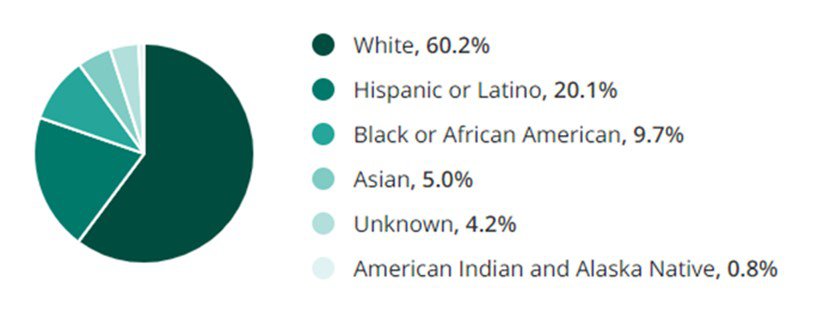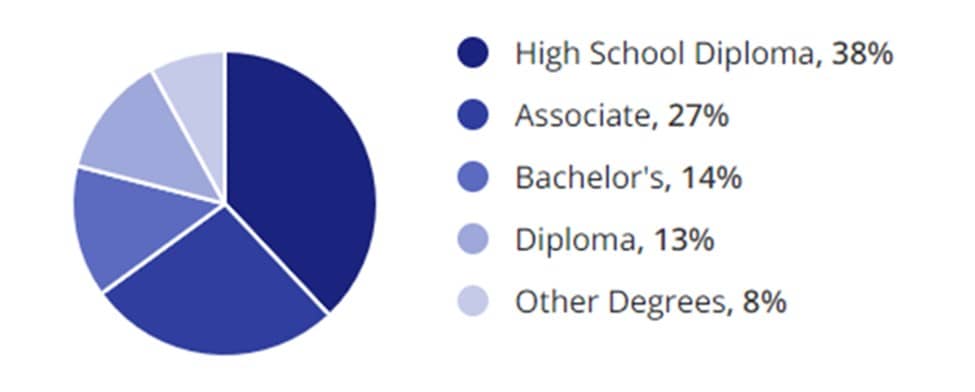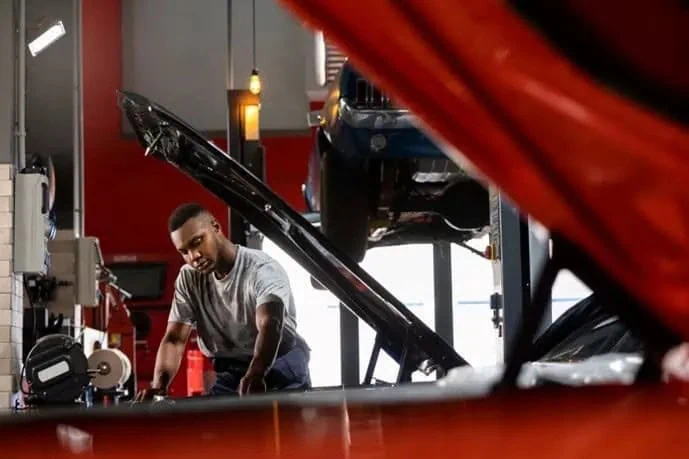Welcome to the ultimate guide for those interested in forging a career within the dynamic world of the automotive industry. Are you interested in automotive careers? This guide helps you explore job opportunities in the automotive industry, whether you’re a recent graduate, a seasoned professional, or simply passionate about automotive. The journey into the automotive sector offers an exciting path filled with innovation, technological advancements, and the opportunity to contribute to the evolution of transportation.
In this comprehensive guide, we’ll explore all you need to know about launching or advancing your career in the automotive field. From understanding the educational requirements and identifying your expertise to navigating the current job market and prospects, we aim to equip you with the essential insights and tools needed for success. You’ll discover the diversity of roles available, including automotive sales manager jobs, automotive engineer positions, sales opportunities, and more.
Moreover, we’ll look into salary trends, educational pathways, and the in-demand skills that can set you apart in the job market. With the automotive industry at the cusp of significant transformation, driven by the rise of electric and autonomous vehicles, there’s never been a more exhilarating time to join this sector. This guide aims to inform and inspire you to take the following steps toward an enriching and fulfilling automotive career. Let’s accelerate toward your automotive dream job together.
Educational Requirements
Starting a career in the automotive industry begins at various educational levels. While some roles, such as specific automotive mechanic jobs, may require only a high school diploma, advancing in this field often demands specialized training and education. Many professionals boost their qualifications through vocational programs, community colleges, or technical schools specializing in automotive services and technologies.
An essential credential that sets apart skilled workers in this field is the National Institute for Automotive Service Excellence (ASE) certification. Whether aspiring to automotive sales manager jobs or becoming an automotive mechanic, these certifications can be crucial to achieving higher roles and responsibilities. They signal to employers significant expertise and commitment to the industry.
Post-secondary education in auto body repair programs can provide the necessary skills for those interested in roles that blend creativity with technical skills, such as automotive painter jobs. Similarly, leadership positions, including automotive general manager jobs
Aligning education and training with your desired role is critical in your automotive career. Invest in your education; it could be the key to unlocking doors in the automotive jobs market.
Areas of Expertise
The automotive sector is vast, presenting many areas where professionals can specialize. Your passion and skills can guide you toward a fulfilling career in one of the following specializations:
- Automotive Technician/Mechanic: Essential in diagnosing and fixing vehicles, technician jobs are the backbone of automotive service centers.
- Automotive Designer: If creativity drives you, designing vehicles that combine aesthetics with functionality might be your calling.
- Automotive Engineer: Engineers innovate and improve vehicle technologies, making cars safer, more efficient, and environmentally friendly.
- Sales and Marketing: For those with a knack for communication and sales, automotive sales manager jobs are pivotal in connecting customers with their ideal vehicles.
- Quality Control Specialist: Ensuring vehicles meet safety and quality standards is crucial, making this role vital for automotive manufacturers.
- Automotive Painter: Perfect for those who appreciate the details, automotive painter jobs focus on the finishing touches that make vehicles shine.
- Automotive General Manager: Overseeing the operations of dealerships or service centers, automotive general manager jobs are for those with leadership skills and a broad understanding of the automotive industry.
Individuals can further niche within these areas, focusing on electric vehicles, performance cars, or specific makes and models. The automotive sector has lots of different jobs you can do. Each area of expertise requires specific skills and knowledge to drive innovation and ensure customer satisfaction. This diversity in specializations is a reflection of the industry’s broad reach and its ecosystem.
Demographics in the United States
Ethnicity/Race:
The workforce in the U.S. automotive industry showcases ethnic and racial backgrounds. This variety mirrors the multifaceted American society and contributes to a more inclusive and innovative sector. The diversity seen in roles across automotive jobs, from automotive painter jobs to automotive general manager jobs, includes:
- White: 60.2%
- Hispanic or Latino: 20.1%
- Black or African American: 9.7%
- Asian: 5.0%
- Other: 4.2%
- Native American and Alaska Native: 0.8%

Gender:
The gender distribution within the automotive sector leans heavily towards male dominance, particularly in technical roles such as automotive technicians. However, the industry gradually sees more female representation, especially in sales, marketing, and managerial positions. Currently, the breakdown is approximately:
- Men: 96%
- Women: 4%

Age:
The age range in the automotive field shows a blend of seasoned professionals and younger newcomers. An average age of around 40 reflects experience and fresh perspectives. Both are crucial for innovation and adaptability in this fast-evolving industry. This balance is critical to fostering mentorship and ensuring knowledge transfer across generations within automotive jobs.

Salary Trends
Salaries in the automotive industry can vary widely and be influenced by specialization, geographic location, and experience level. From entry-level roles to specialized positions such as automotive engineer jobs, automotive painter jobs, and automotive general manager jobs, the pay scale can reflect the sector’s wide range of skills and responsibilities. As of recent, the salary trends for automotive employment have been as follows:
- Automotive Technician/Mechanic: Entry-level technicians can expect to start around $30,000 annually, with experienced technicians earning upwards of $60,000.
- Automotive Sales Manager: Compensation varies widely, with salaries ranging from $45,000 to over $100,000, depending on experience and dealership success.
- Automotive Engineer: Starting salaries are generally in the $70,000 range, potentially growing significantly with experience and specialization in in-demand areas.
- Automotive Painter: Beginners might start around $30,000, but skilled painters with a knack for custom work can earn more than $50,000.
- Automotive General Manager: Automotive general manager jobs can command salaries well above $100,000, influenced by dealership size and profitability.
Plus, many automotive jobs give you extra money based on how well you do, especially if you sell stuff. As technology gets better, especially with electric and self-driving cars, people who know about them might get more jobs and money. For anyone considering a career in this dynamic field, understanding current salary trends is essential to gauge the industry’s opportunities.
Hiring Trends
The automotive industry is experiencing shifts influenced by technological advancements, consumer preferences, and global economic factors. These changes are reshaping hiring trends, with specific skills and roles being more in demand. More electric cars and self-driving cars mean more chances for people who know a lot about them to get jobs. Hiring trends in the automotive sector include:
- Increased Demand for EV Skills: As the market for electric vehicles expands, there’s a growing need for technicians skilled in EV maintenance and repair alongside engineers specializing in EV technology.
- Autonomous Vehicle Development: This cutting-edge area creates new roles for software engineers, data analysts, and cybersecurity experts within automotive companies.
- Digital Sales and Marketing: With many consumers beginning their car-buying journey online, there’s a higher demand for digital marketing and sales professionals who can navigate the online landscape effectively.
- Customer Experience Specialists: Companies are focusing on delivering exceptional customer service, leading to a need for professionals who can enhance the customer journey, from initial inquiries to after-sales support.
Moreover, as the industry strongly emphasizes sustainability and environmental responsibility, roles related to green technologies and sustainable practices are becoming more prevalent. The automotive sector remains vibrant, offering a range of career opportunities for those eager to participate in its evolution. Job seekers must stay informed about hiring trends to align their skills and interests with the industry’s future needs.
Education Levels
The education levels among professionals in the automotive industry are as diverse as the roles themselves. Lots of different jobs are available, like fixing cars or being a boss, and how much school you need can change. A snapshot of the current educational background within this sector reveals:
- High School Diploma: A high school diploma is often the minimum requirement for entry-level technician roles, equipping individuals with essential skills needed for initial positions.
- Vocational Training or Certificates: Many automotive technicians and specialists enhance their qualifications and job prospects through vocational programs, which provide specialized training and certifications.
- Associate Degree: An associate degree in automotive technology or a related field is common among those seeking to advance beyond entry-level positions, offering a deeper understanding of automotive systems.
- Bachelor’s Degree: For roles that require a high level of expertise, such as automotive engineers or managerial positions, a bachelor’s degree in automotive engineering, mechanical engineering, business administration, or a related discipline is often necessary.
- Advanced Degrees: While less common, some professionals pursue master’s degrees or even PhDs, particularly those involved in research, development, and teaching at the collegiate level.
Education is crucial for success in automotive careers. Different pathways are available, from starting with a high school diploma to obtaining advanced degrees. Climbing the ranks through experience and certifications is also possible. Aligning education and training with career goals is essential.

Skills in Demand
The automotive industry is evolving rapidly, influenced by technological advancements and changing consumer expectations. This evolution drives the demand for a new set of skills among professionals. Currently, the skills highly sought after in the industry include:
- Advanced Technical Proficiency: Deep knowledge in diagnostics and repair, especially with the increasing complexity of modern vehicles, remains crucial.
- Electric Vehicle (EV) Expertise: Understanding electric and hybrid vehicles’ design, maintenance, and repair is becoming essential as the market shifts towards sustainable alternatives.
- Software and Digital Tools Mastery: With vehicles incorporating more software and digital interfaces, skills in computer-aided design (CAD), programming, and data analysis are increasingly valuable.
- Customer Service and Sales: The ability to deliver outstanding customer service and possess strong sales tactics is critical, especially in roles directly interacting with consumers.
- Leadership and Management: As roles progress into managerial positions, skills in leadership, team management, and operations become critical for success.
- Environmental and Sustainability Knowledge: Awareness and expertise in green technologies, sustainable practices, and environmental regulations are gaining importance.
These skills align with the trends shifting the industry’s focus towards electrification, digitalization, and sustainability. To excel in automotive careers, professionals should cultivate these competencies to remain competitive in the evolving automotive industry.
Current & Future Automotive Jobs Outlook
From entry-level to general manager roles, the automotive job landscape is promising, influenced by tech innovation, consumer trends, and sustainability. As we think about what’s coming, a few important things will change the kinds of jobs you can find in cars.
- Growth in Electric Vehicle Production: The push towards electric vehicles (EVs) is expected to create new job opportunities, particularly for those skilled in EV technology and sustainable automotive solutions.
- Autonomous Vehicle Development: The advancements in autonomous driving technology will likely spur demand for professionals skilled in software development, sensor technology, and cyber security.
- Increased Focus on Digitalization: The automotive buying process and vehicle connectivity are becoming more digitalized, leading to a greater need for digital marketing professionals, data analysts, and IT specialists.
- Aftermarket Services and Customization: As vehicles become more advanced, specialized services for maintenance, customization, and retrofitting are in demand, offering opportunities for technicians with niche skills.
- Sustainability and Environmental Regulations: Companies are increasingly focused on reducing their environmental impact, driving the need for expertise in sustainable practices, materials science, and environmental compliance.
The automotive sector is undergoing a major shift driven by vehicle electrification, sustainability focus, and integration of advanced technologies. Professionals in this domain can expect a future valuing innovation, adaptability, and dedication to ongoing learning and development. Are you passionate about automotive tech and sustainability? The future holds abundant opportunities for those eager to contribute to a greener world.
FAQ’s
What education do I need to start in the automotive industry?
Education requirements can vary based on the specific role. Many entry-level automotive technician jobs may require only a high school diploma and on-the-job training. However, technical roles often benefit from vocational training or an associate degree, particularly for more advanced positions.
Are there opportunities for advancement in the automotive industry?
Indeed, the automotive sector provides ample room for progression, particularly for individuals enhancing technical skills, obtaining certifications, and accumulating experience. Leadership roles and specialized technical positions can be achieved through education, knowledge, and industry expertise.
Is the automotive industry affected by economic downturns?
Like many sectors, the automotive industry can be sensitive to economic conditions. Despite economic fluctuations, essential services like vehicle repair offer stable employment, ensuring consistency for professionals in this sector.
What skills are most in demand in the automotive industry today?
In-demand skills: advanced technical proficiency, electric and hybrid vehicle knowledge, software mastery, customer service, leadership, and sustainability practices.
How is technology changing automotive jobs?
Technology-driven shifts in the automotive industry spawn new jobs and reshape roles, impacting the sector significantly. Industry professionals must be adaptable and open to continuous learning to remain relevant.
Additional Resources
For those eager to learn more about the automotive industry, many resources are available to help. From certifications to the latest industry news, the following list offers valuable information and support:
- The National Institute for Automotive Service Excellence (ASE) provides certification for automotive professionals, signifying high skill levels and knowledge in various auto repair and service areas.
- For insights into automotive engineering and technology, the Society of Automotive Engineers (SAE) offers publications, professional development, and networking opportunities.
- The CareerOneStop, sponsored by the U.S. Department of Labor, features tools to research career paths, training, and jobs in the automotive sector, among other industries.
- For those interested in automotive research and the latest technological advancements, the National Renewable Energy Laboratory (NREL) offers sustainable transportation and energy efficiency resources.
These resources can aid auto professionals in upgrading skills, expanding knowledge, and keeping up-to-date with industry trends. Whether you’re just starting or looking to advance your career, these tools offer information to support your professional development.
Conclusion
The automotive industry is a dynamic and evolving sector, providing numerous opportunities for those keen to explore its depths. Moreover, it boasts a promising future, offering exciting career prospects in technical, creative, and sustainable roles. Furthermore, the transition towards electric vehicles and digital advancements promises ample growth and fulfillment.
To succeed in the automotive industry, stay informed, build skills, and network with professionals. The journey into or within the automotive sector requires dedication, passion, and a commitment to lifelong learning.
We invite you to Join Diversity Employment. Discover diverse automotive job opportunities and connect with an inclusive equal opportunity employer who value innovation and diversity in the workplace. Let’s shift gears towards a brighter, more inclusive future in the automotive industry.




